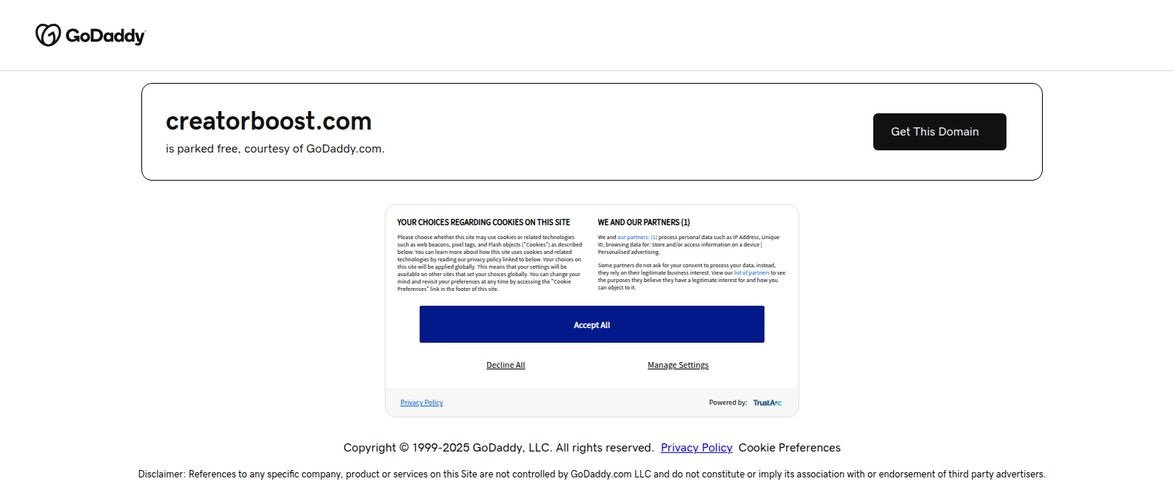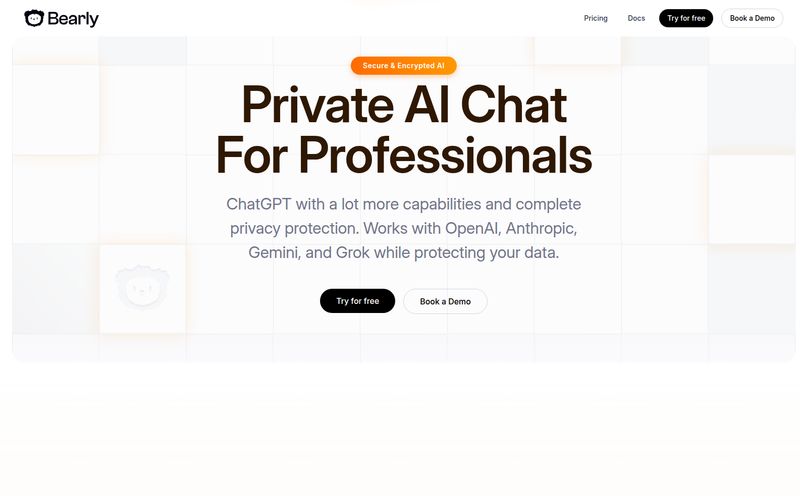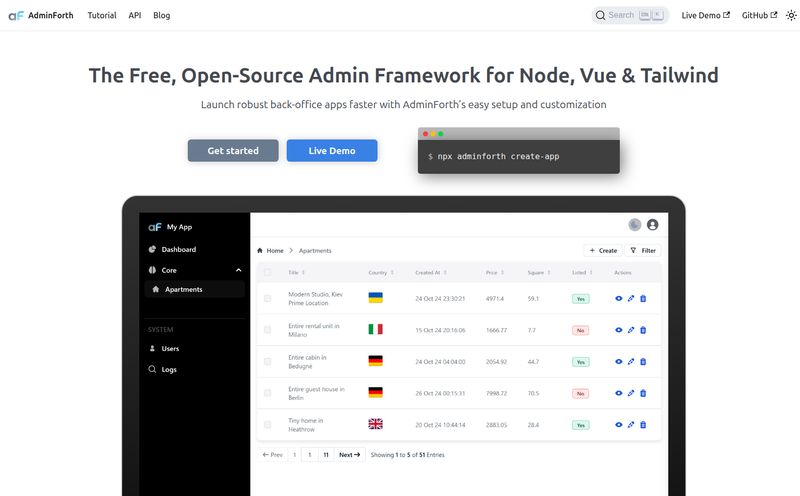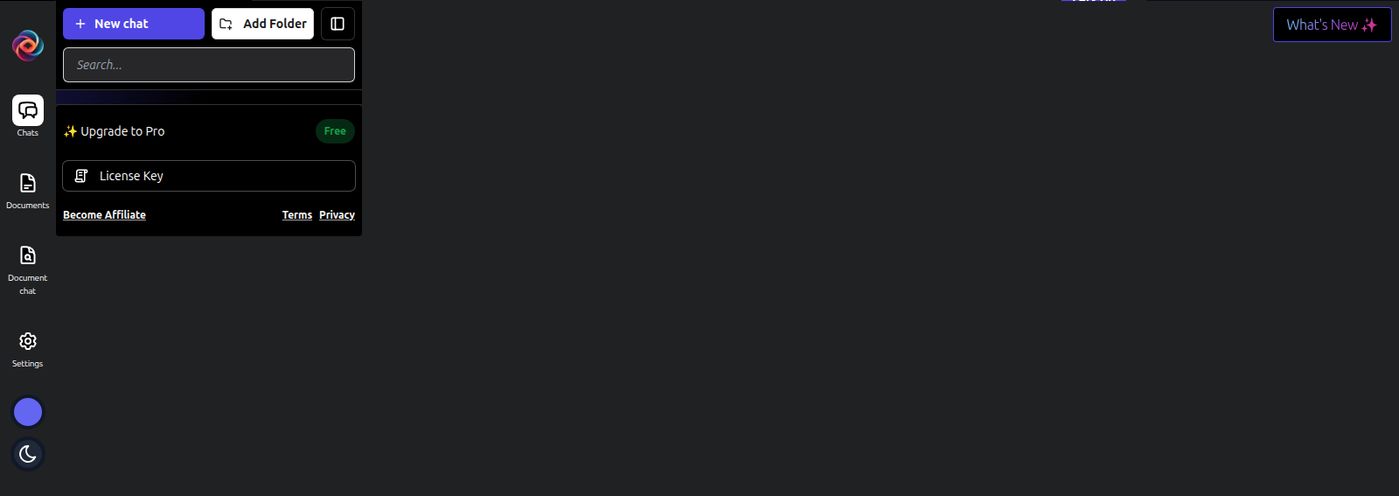I’ve been in the SEO and traffic generation game for a long, long time. And if there’s one constant headache, one eternal bottleneck, it’s getting data. Not just having data—we’re all drowning in it—but getting answers from that data. You know the drill. You have a simple question, like “Which blog posts from last quarter brought in the most signups?” and suddenly you’re filing a ticket with the data team, waiting three days, and getting a spreadsheet that answers a slightly different question.
It's a frustrating dance. We’ve seen a parade of business intelligence tools promise to fix this, each with a steeper learning curve than the last. So when I heard about Sequel, an AI-native BI platform that lets you just… ask questions in plain English, my inner skeptic raised an eyebrow. Another magic bullet? But I have to admit, my curiosity got the better of me.
Could this finally be the tool that democratizes data for the rest of us? The marketers, the product managers, the founders who just need a quick number without learning a whole new coding language? Let's find out.
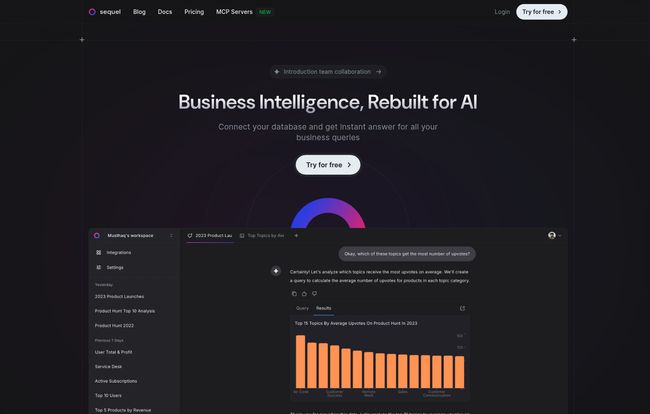
Visit Sequel
So, What is Sequel, Really?
At its heart, Sequel is a translator. Think of it like the Babel Fish from The Hitchhiker's Guide to the Galaxy, but for databases. You connect your company’s database (like a PostgreSQL, MySQL, or BigQuery database), and then you can just chat with it. You type a question in normal, everyday language, and Sequel’s AI goes to work, translating your request into the complex SQL code needed to pull that information. Seconds later, it gives you back the answer, often with a neat graph or report already generated.
It’s designed to cut out the middleman. No more waiting, no more miscommunication. Just you, your data, and the answers you need, right now. It's an appealing promise, especially for teams that don't have a dedicated data analyst on speed dial.
Who Is This Tool Actually For?
While the obvious answer is “people who can’t write SQL,” I think that’s selling it short. I’ve found that tools like this have a much broader appeal. Sure, it’s a godsend for a marketing manager who wants to check campaign performance without bothering an engineer. One of the user testimonials from a founder, Durmuş U., really hits this point home: “Amazing stuff, it's very useful for someone like me who is non-technical to gain insights from the db.” That says it all, really.
But I also see massive value for developers and data analysts. Imagine how much faster you could work if you could generate the boilerplate for a complex query just by describing it. You can then jump into the AI-generated SQL and tweak it. It’s not about replacing technical roles; it’s about giving them a powerful assistant. It automates the tedious stuff so you can focus on the more nuanced, strategic parts of data analysis.
My First Impressions and Favorite Features
Setting it up is surprisingly straightforward. You connect your database, and Sequel takes a moment to understand its structure (or schema, for the technical folks). Once that's done, you're off to the races.
The Natural Language Magic
This is the main event. Typing “Show me our monthly recurring revenue for the past 6 months” and seeing a perfect line chart appear feels… well, a little like magic. It’s not just pulling numbers; it understands concepts like “monthly recurring revenue” if your data is structured logically. Of course, the AI's accuracy is only as good as the data it’s reading and how well it understands your tables. For most standard business queries, I found it impressively accurate.
Beyond Just Questions: AI-Powered Insights
One thing that pleasantly surprised me was the platform’s ability to generate reports and visualizations on the fly. It doesn’t just spit out a number. It often suggests the best way to see that number—a bar chart for comparisons, a pie chart for breakdowns, etc. This is huge. A raw number is data; a chart is an insight. It helps you spot trends you might have otherwise missed just by looking at a table.
A Nod to the SQL Nerds
I love that Sequel doesn’t completely hide the code. It includes an AI SQL Editor that shows you the query it generated. This is brilliant for two reasons. First, it’s a fantastic learning tool for anyone wanting to pick up SQL. Second, it allows for trust and verification. If an answer seems a bit off, a technical user can pop the hood and see exactly what the AI did. You can even edit the SQL yourself for those super-specific, tricky queries the AI might struggle with. Best of both worlds.
Let's Talk Integrations and Pricing
A tool is only as good as what it connects to. Sequel seems to understand this, supporting a solid range of popular databases. I saw support for PostgreSQL, MySQL, AWS, Snowflake, BigQuery, and a few others. This covers the bases for most startups and modern tech companies.
Now, for the question on everyone’s mind: what’s the damage? The pricing structure is actually quite reasonable and scales logically.
| Plan | Price | Key Features |
|---|---|---|
| Free | $0 | 1 Database, 1 User, 50 AI Queries |
| Professional | $19 /user/month | 10 Databases, 1000 AI Queries/user, Premium Integrations |
| Team | Custom | Unlimited Databases, Users, and Queries |
The Free plan is a genuine free tier, not just a time-limited trial. It's perfect for a solo founder or a very small team just wanting to dip their toes in the water. 50 AI queries is enough to prove its value. The Professional plan at $19 per user feels like the sweet spot for growing teams, offering plenty of queries and more database connections. The custom Team plan is for the big leagues, with unlimited everything and likely some dedicated support.
The Good, The Bad, and The AI
What I Genuinely Like
The speed is the killer feature. The time saved from the back-and-forth with data teams is immense. It truly feels like it breaks down the walls between departments, creating a more data-informed culture without forcing everyone to become a programmer. It puts powerful analytics into the hands of the people who are actually making the day-to-day business decisions.
A Few Caveats to Consider
Let's be real, it's not perfect. Like any AI tool, its effectiveness hinges on the quality of the underlying data and the clarity of your questions. If your database is a mess, Sequel can’t magically clean it for you. You are also placing a lot of trust in the AI's ability to interpret your queries correctly. For mission-critical financial reporting, I'd still want to double-check the generated SQL. It's a powerful assistant, not an infallible oracle. There will also be a ceiling for extremely complex, multi-join queries where manual SQL might still reign supreme for customisation.
Frequently Asked Questions
Is Sequel secure to connect to my database?
Connecting any third-party tool to your database requires trust. Sequel states on their site that they use industry-standard security practices. They likely connect with read-only permissions to prevent any accidental changes to your data, which is a critical safety measure. As always, you should review the security documentation for any service you use.
How accurate is the AI's SQL generation?
In my testing with standard queries, it was highly accurate. The accuracy depends on how well-named your database tables and columns are, and the complexity of your request. For ambiguous questions, it might make an educated guess that isn't quite right. That's why the ability to view and edit the generated SQL is so important.
Will this tool replace my data analysts?
Absolutely not. This is a common fear with AI tools, but it's unfounded. Sequel empowers analysts, it doesnt replace them. It handles the repetitive, simple queries, freeing up analysts to focus on deeper, more strategic work that AI can't handle—like interpreting the why behind the data, building complex data models, and driving business strategy.
Is it difficult to set up?
No, the setup process is designed to be user-friendly. If you have your database credentials handy, you can be connected and asking questions within minutes. The main work is ensuring your database itself is organized in a logical way.
What happens if I ask a really complex question?
The AI will do its best to generate a query. It might get it right, or it might need some help. This is where the AI SQL editor becomes your co-pilot. You can see its attempt and then refine it manually. It's often faster than writing the entire query from scratch.
Final Thoughts: Is Sequel Worth a Shot?
After spending some time with it, my initial skepticism has mostly melted away, replaced by a sense of practical optimism. Sequel isn't some far-off promise of a sci-fi future; it's a genuinely useful tool for today. It successfully tackles a real, persistent problem for so many businesses.
It's not going to put your data team out of a job. But it is going to make them more efficient and make your entire organization smarter and faster. For any team that feels like they're sitting on a mountain of data but starving for insights, Sequel is absolutely worth a look. The free tier makes it a no-brainer to at least try. It might just be the translator you've been looking for.
